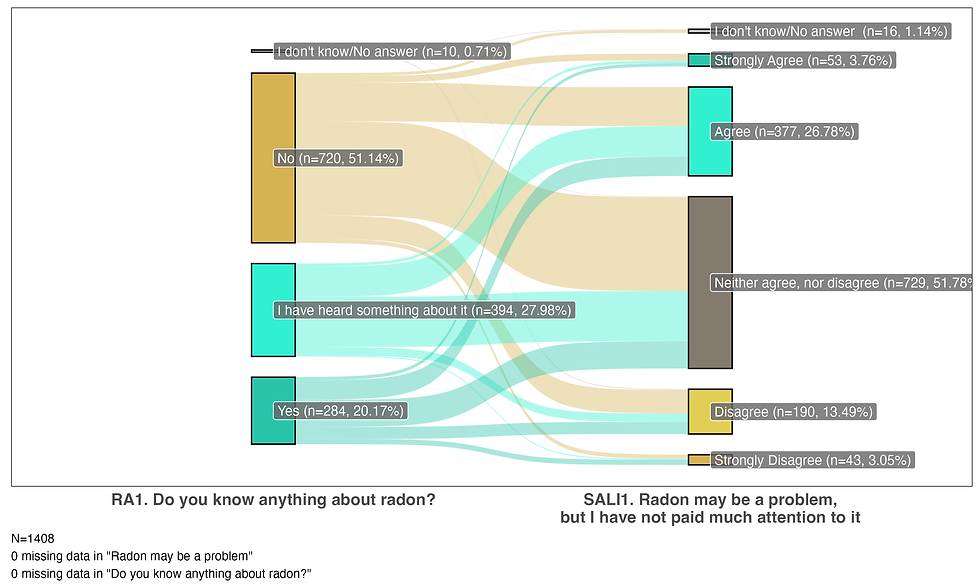
Findings for
Greece
Cite as:
Perko T. (2025): RadoNorm European Radon Behavioural Atlas: Greece, H2020 project RadoNorm, No 900009 https://www.radonorm.eu/
Methodology
Computer-Assisted Personal Interviews (CAPI) were conducted in Greece using a stratified random sampling method to ensure national representativeness based on key demographic variables: gender, age, and level of urbanization, in accordance with the national population distribution. To enhance representativeness, quotas were applied for gender and prefecture of residence.
Due to methodological constraints associated with the Computer-Assisted Web Interviewing (CAWI) mode, older age groups (65+) were underrepresented in the final sample; this limitation was pre-approved by CAWI administrators prior to data collection.
Data collection began with a soft launch, followed by the main fieldwork conducted from December 7 to December 14, 2022. Fieldwork was carried out by Metron Analysis, a company in compliance with EU General Data Protection Regulation (EU-GDPR), ESOMAR guidelines, and relevant ISO standards.
The final sample included N = 1,408 respondents, with a response rate of 93%. The average completion time for the questionnaire was 20 minutes. The survey instrument was jointly developed by RadoNorm and the Greek Atomic Energy Commission, which also funded the data collection. Data analysis was performed by SCK CEN, Belgium.
Data are available at: [DOI:10.20348/STOREDB/1179/1303]
Download the questionnaire PDF here.
Download the technical report PDF here.
Results
Radon protection behaviour
Do people in Greece test and mitigate?




Trustworthiness of radon stakeholders
Who in Greece is recognized as a trustworthy source of information about radon risks?
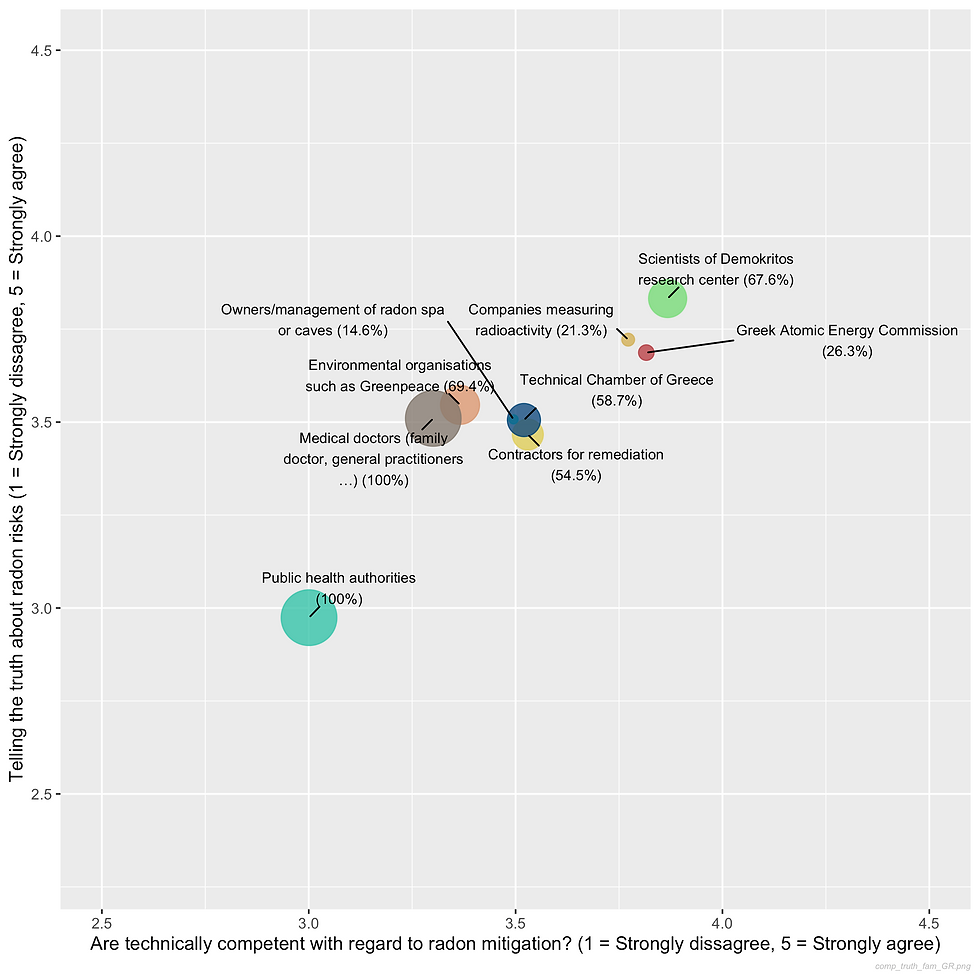
Intention to protect from radon
What is the public willingness to adopt radon protection measures in Greece?
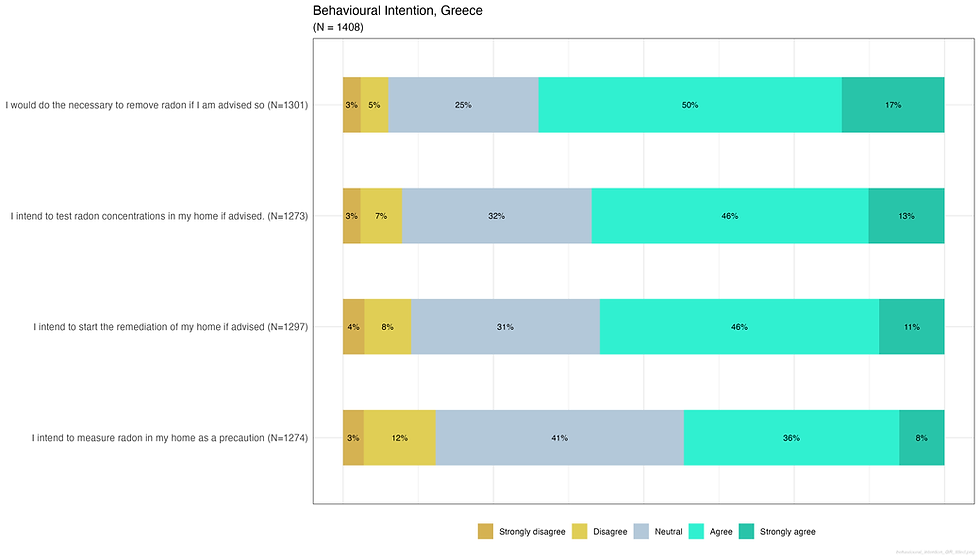
Radon Knowledge
How much people in Greece know about radon?
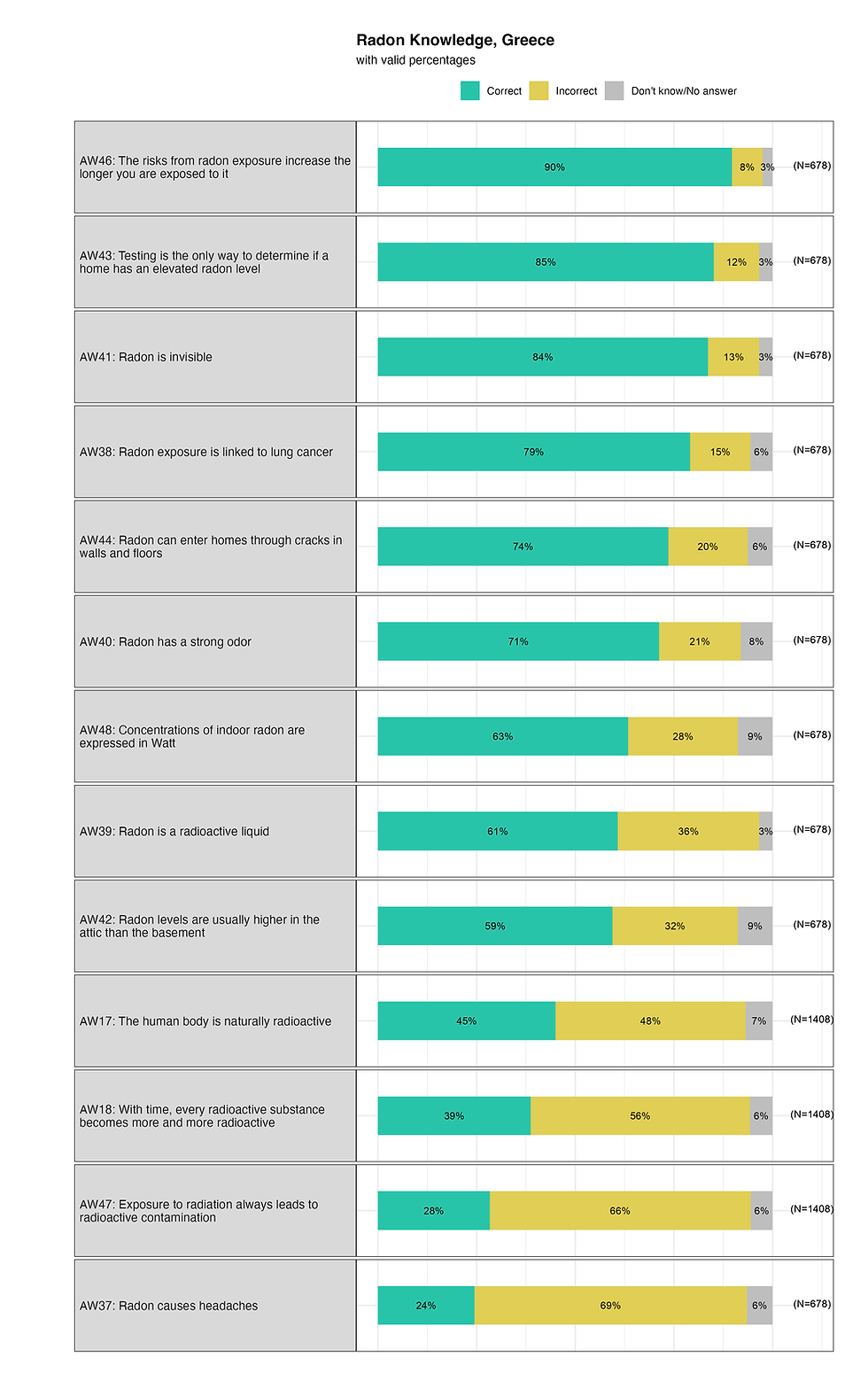

Risk perception
How do people in Greece perceive radiological, radon and other risks?

Confidence in authorities for risk management
To what extent do Greeks have confidence in their authorities' ability to manage risks?

Knowing radon stakeholders
Which stakeholders related to radon are known to Greeks?

Truthfulness of radon stakeholders
Who in Greece is recognized as a trustworthy source of information about radon risks?


Which stakeholders involved in radon mitigation in Greece are recognized as technically competent?
Competence of radon stakeholders
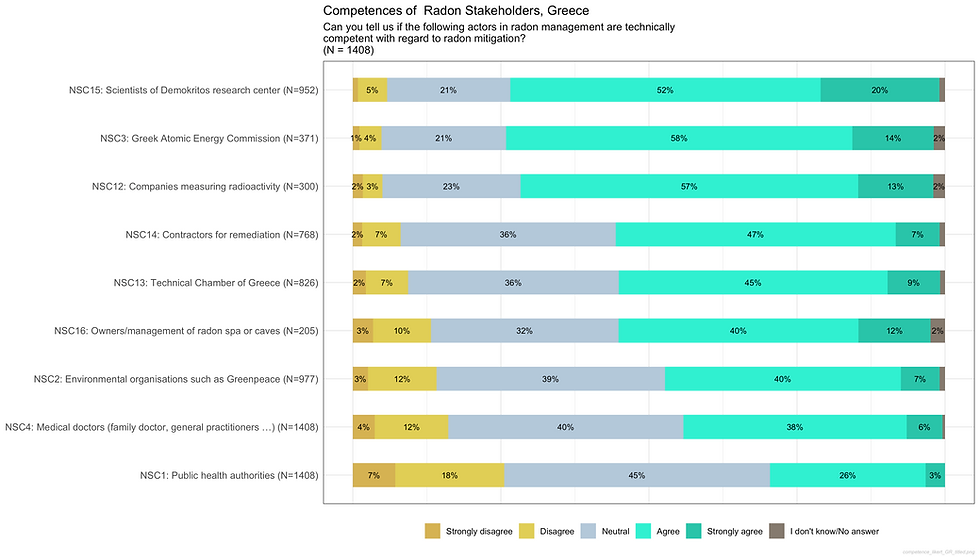

Severity
What are people's beliefs regarding the seriousness of negative consequences due to radon?
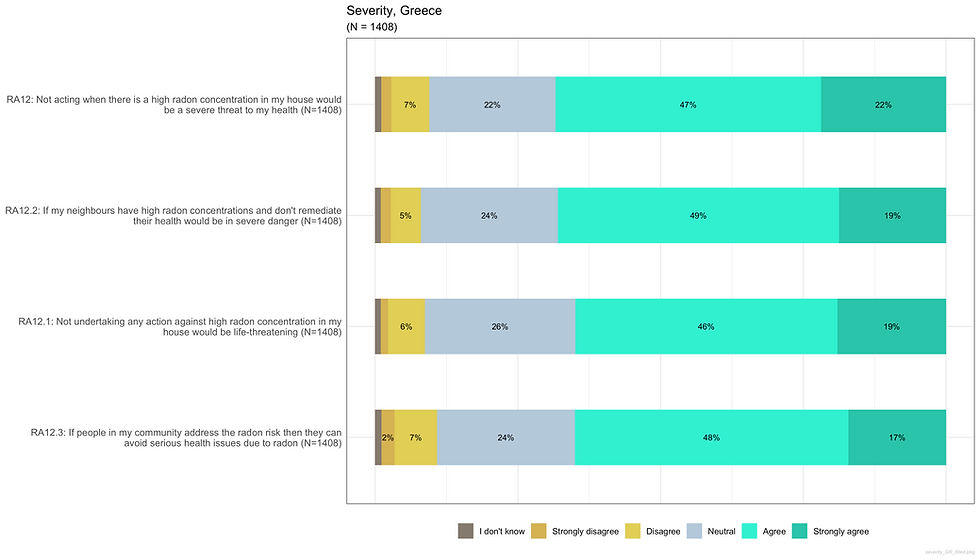
Susceptibility
Do people in Greece believe that radon increases the likelihood of health consequences?

Do individuals believe dwelling remediation is effective in reducing radon concentration?
Response efficacy: remediation

Self-efficacy
Do residents in Greece have confidence in their own ability to conduct radon testing and mitigation effectively?
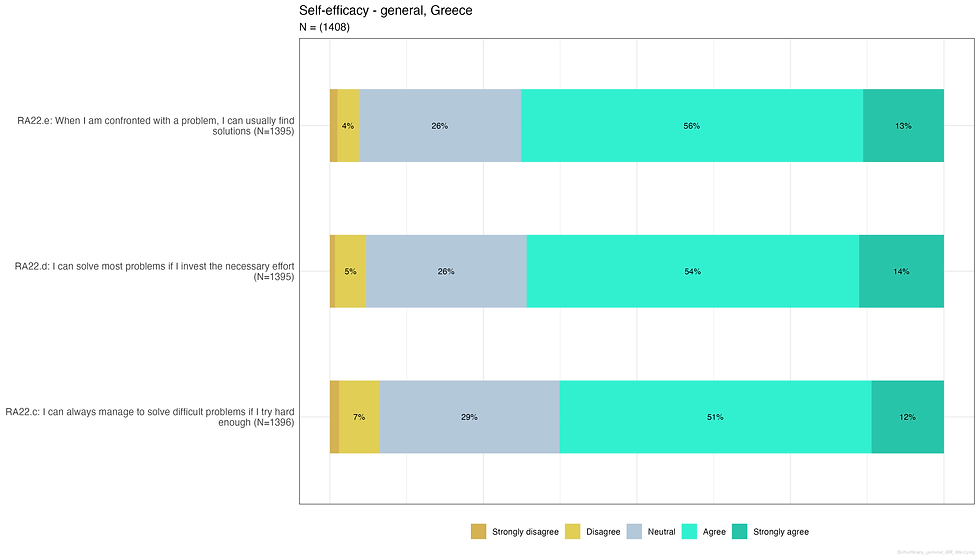

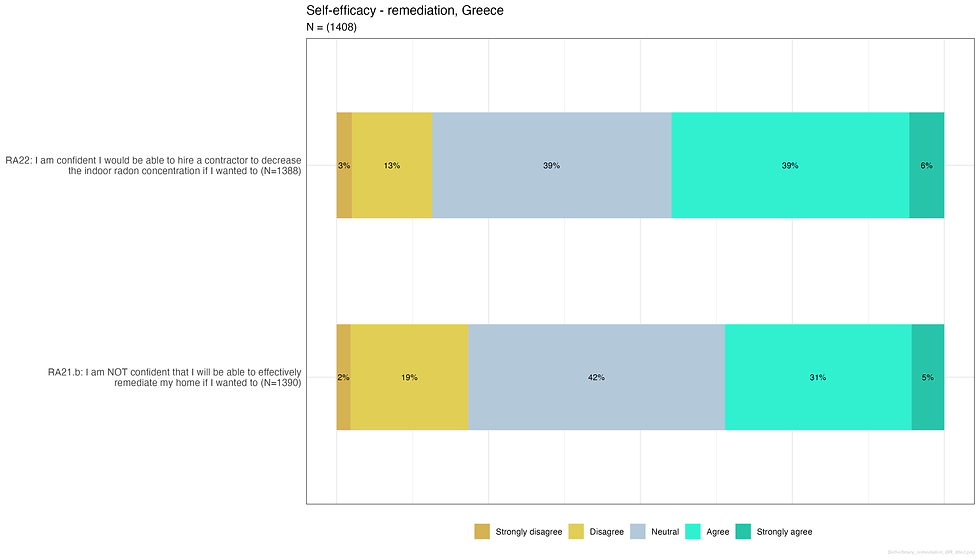
Perceived behavioural control: financial and other burden and ease
Is radon testing and mitigation perceived as a financial or other burden?
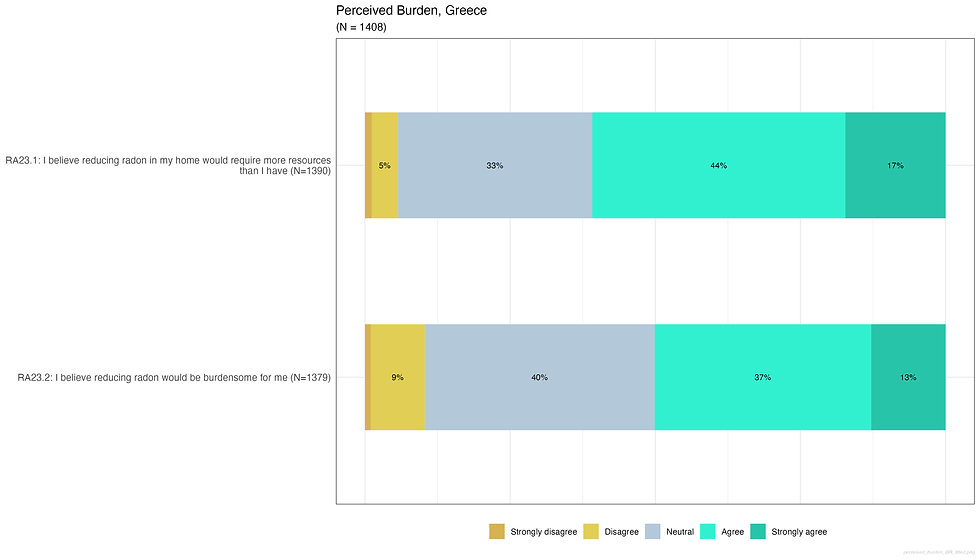


Aesthetic impact of remediation works on a dwelling
Do residents believe that radon mitigation would visually harm their homes?
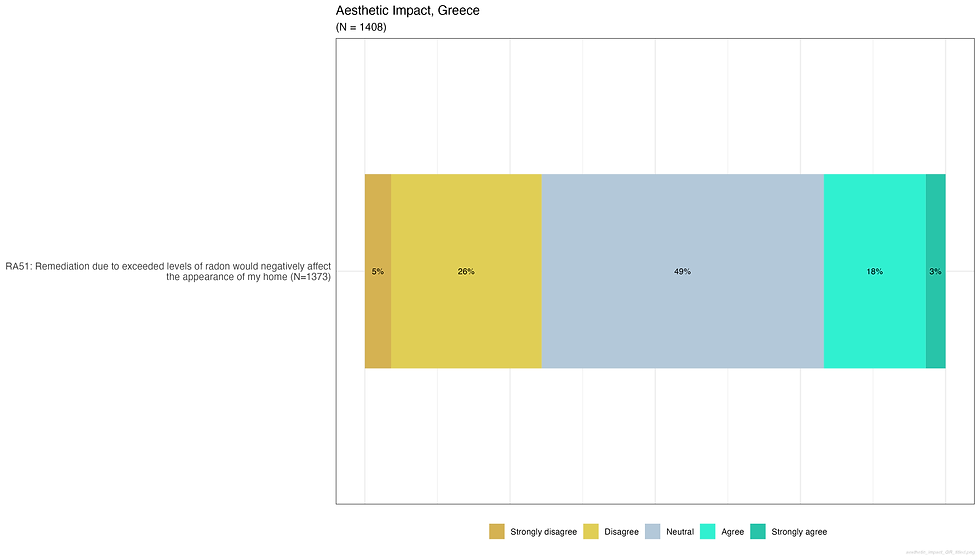
Social influence
What are the attitudes of respondents regarding social influence?
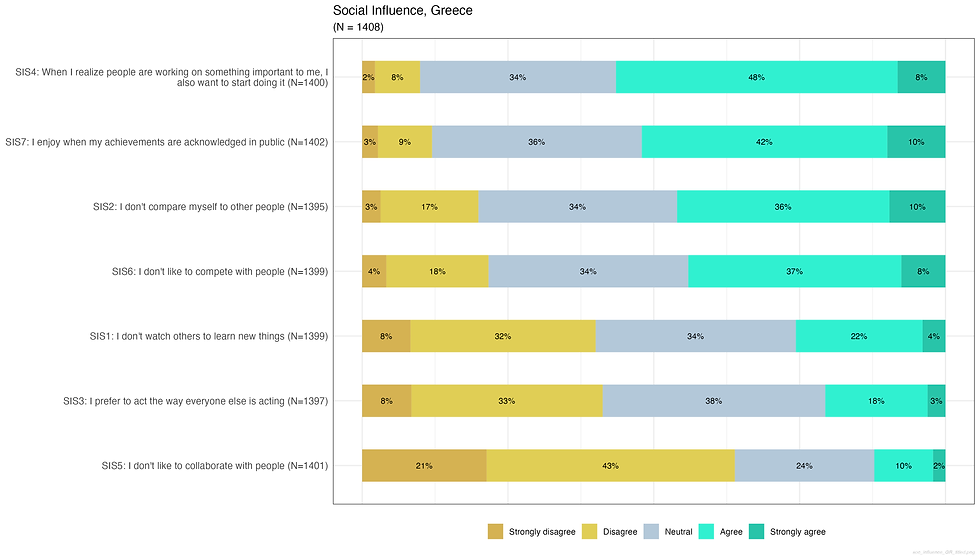
Economic impact of radon on a property value
Does a radon problem in a building negatively impact its financial value?
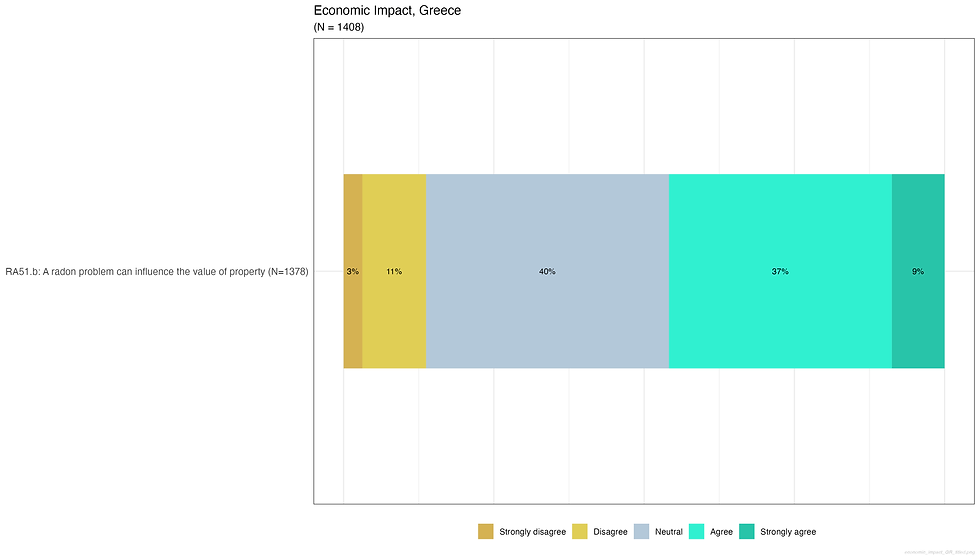
Subjective norms
Do family members and friends of resopondents care about radon-related issues?



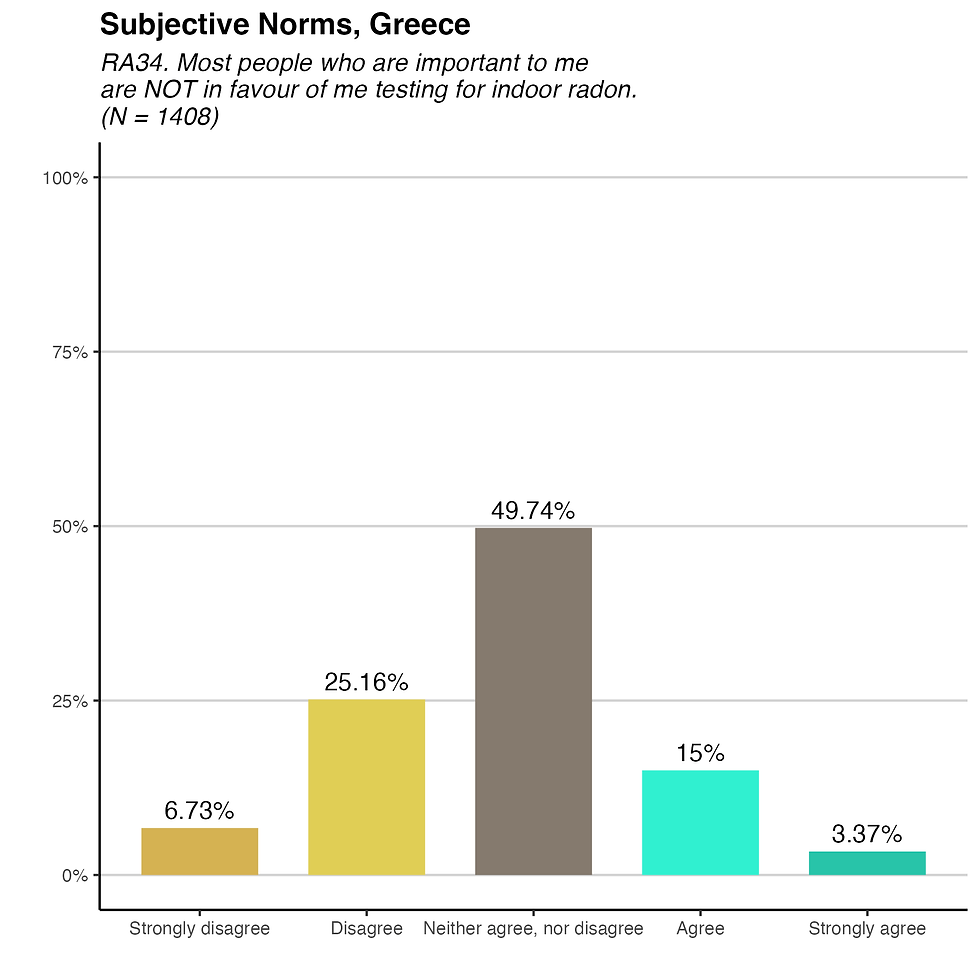
Descriptive norms
Is radon testing and mitigation a common practice within social groups?
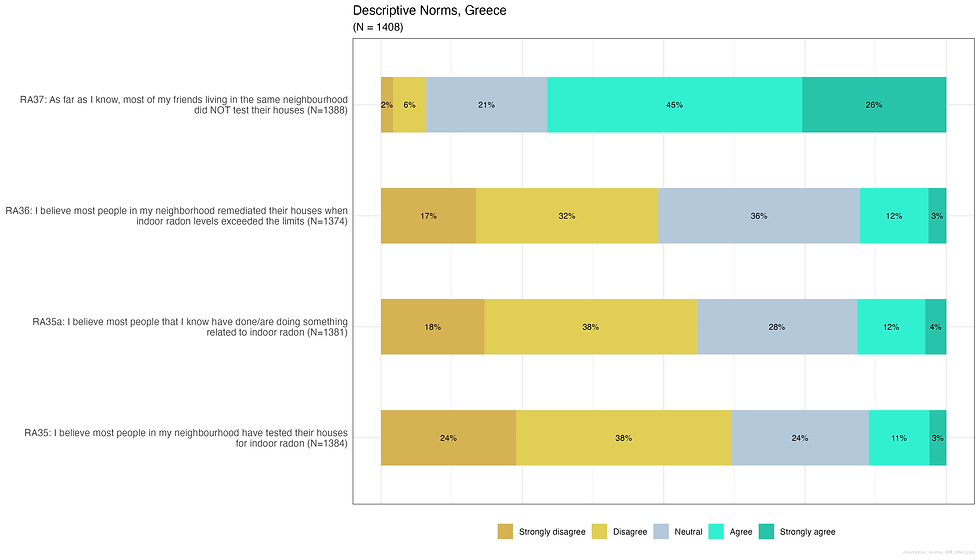
Health effect perception
Do individuals have acquaintances who may have experienced health issues as a result of radon exposure?
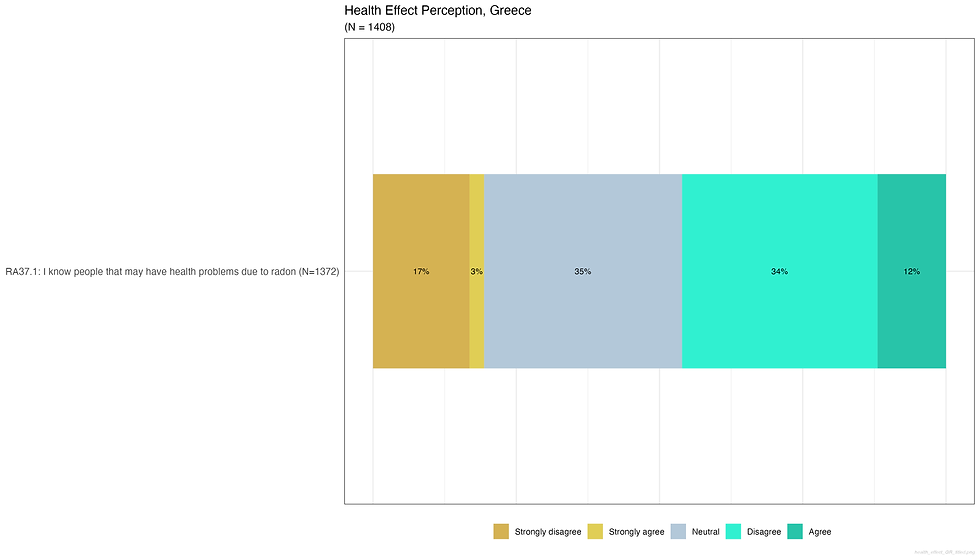
Stigma
Is there a risk of stigma associated with radon in dwellings?
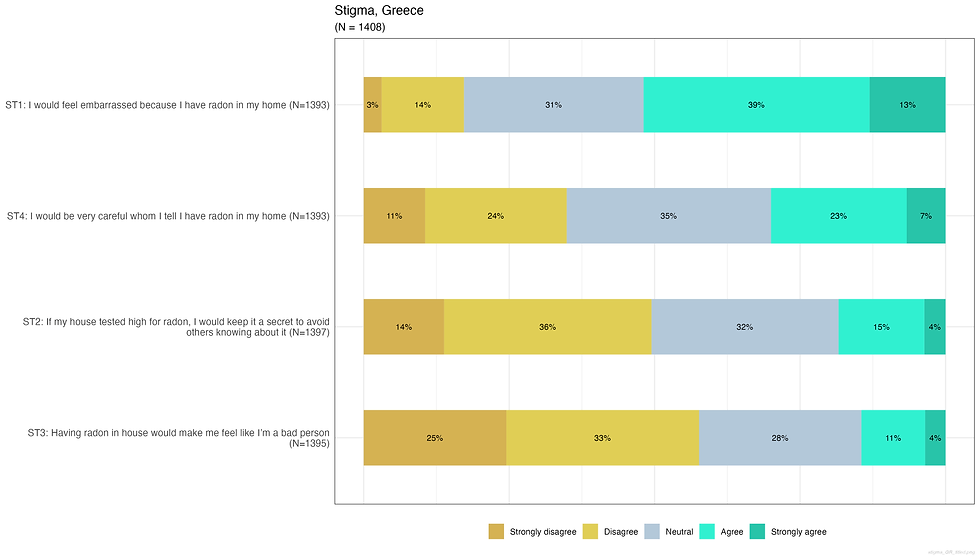
Information processing
How do people process information about radon?
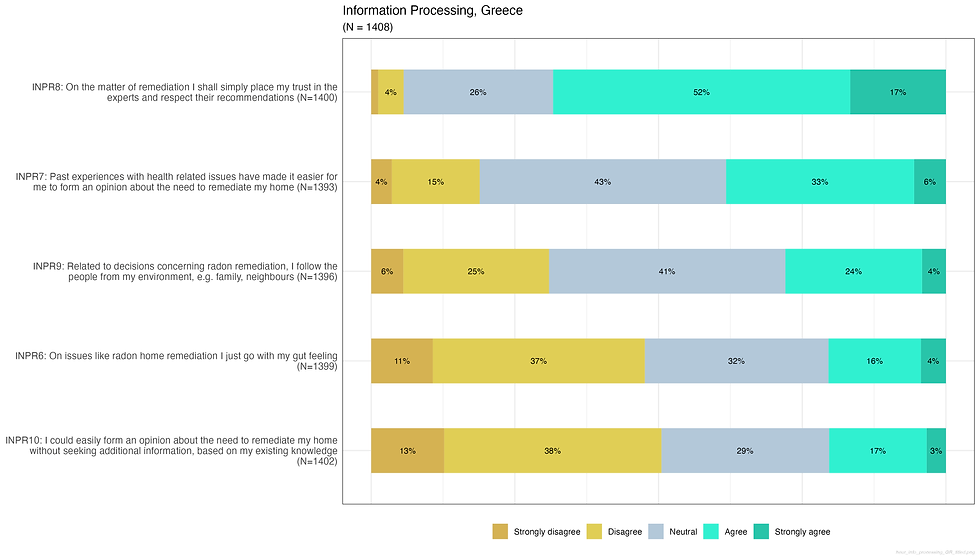

Information comprehensiveness
Is there enough information readily accessible?
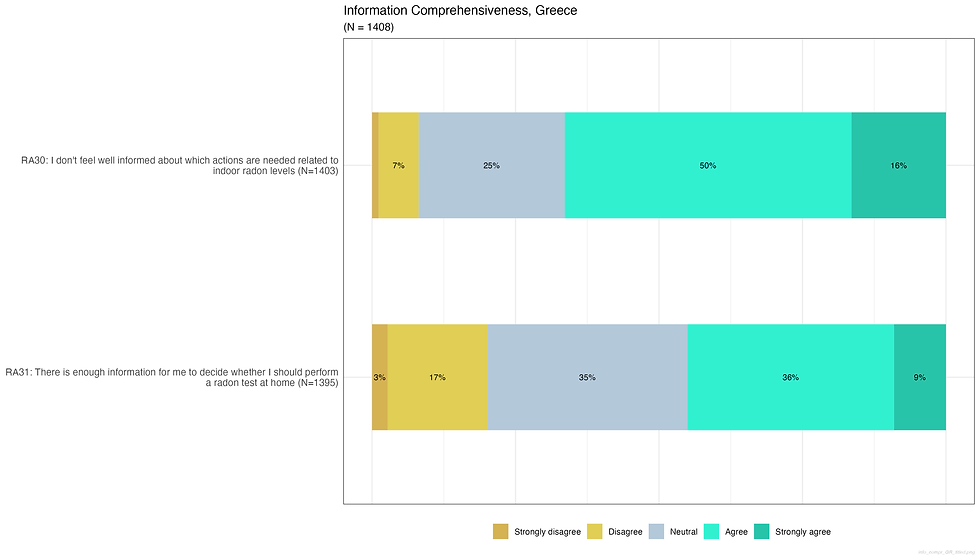
Affective response to information
Does information related to radon elicit negative emotions?

Factors Influencing Behavioural Intention
Radon awareness


Susceptibility
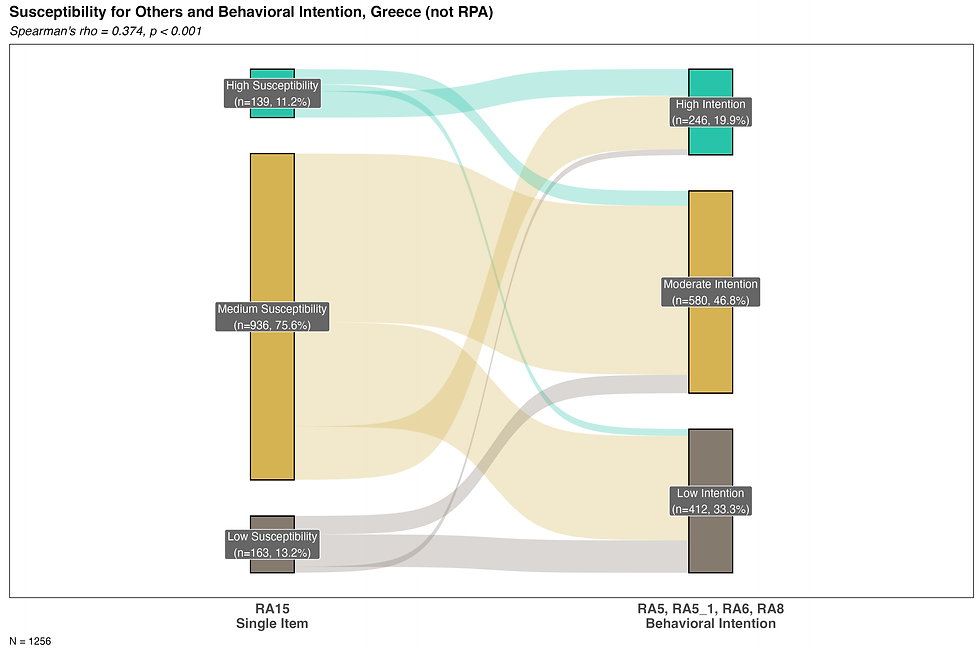
Risk perception


Confidence in authorities for risk management
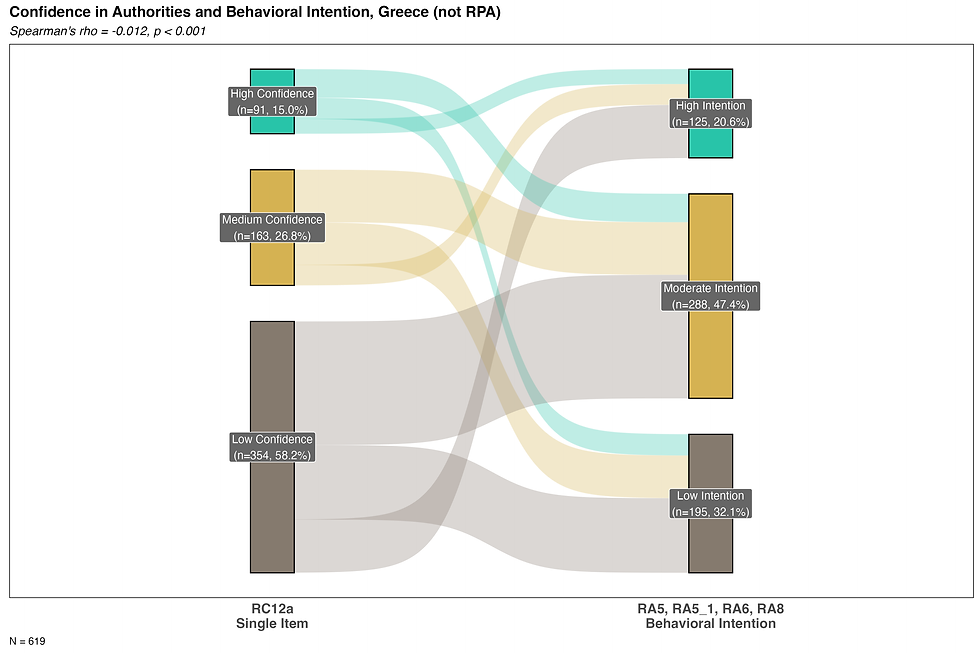

Response efficacy: remediation

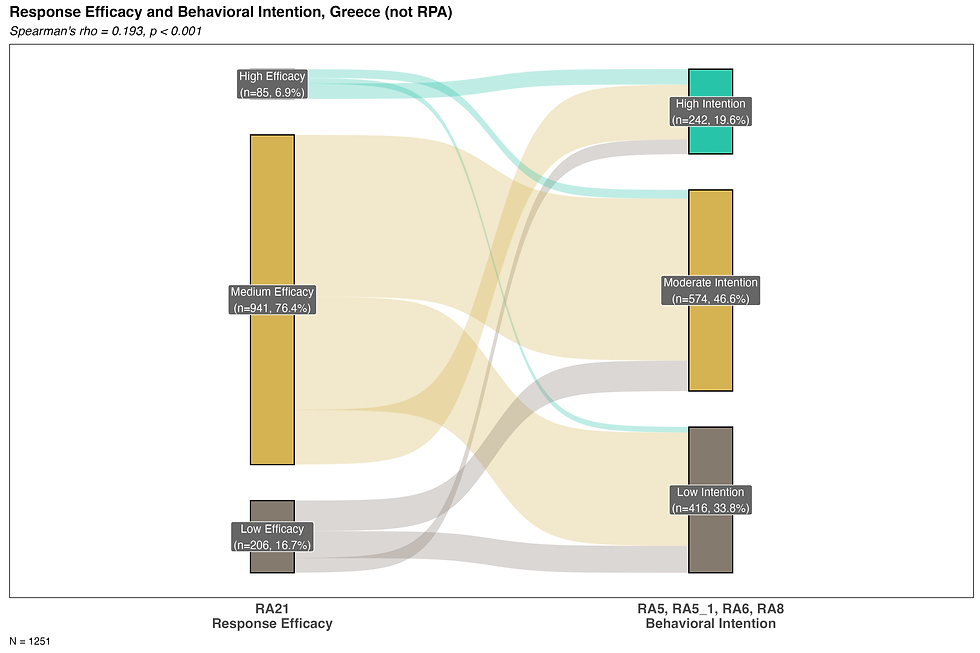
Self efficacy

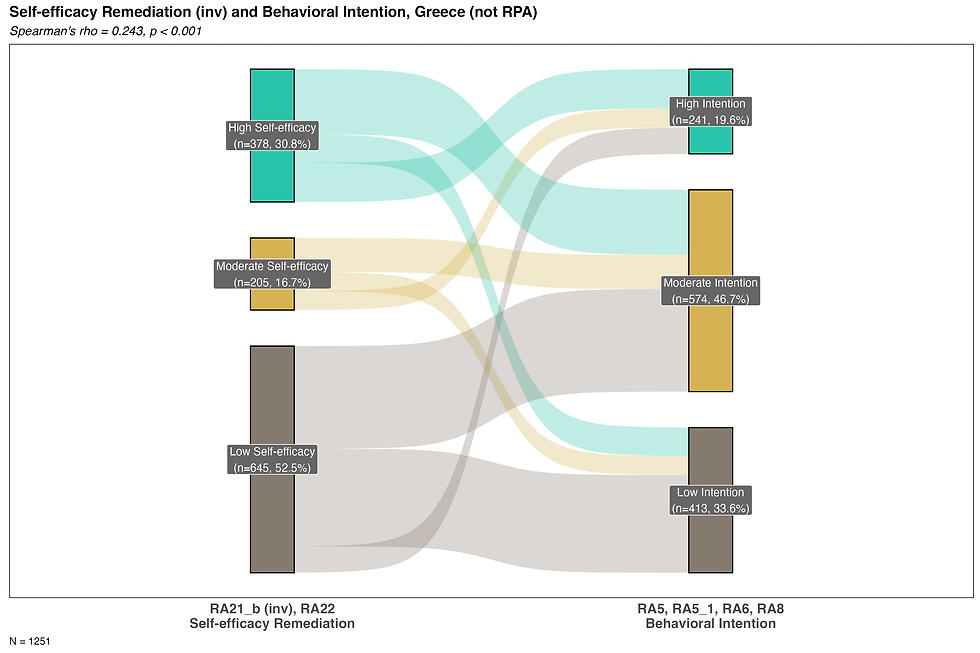
Perceived behavioural control: financial and other burden and ease
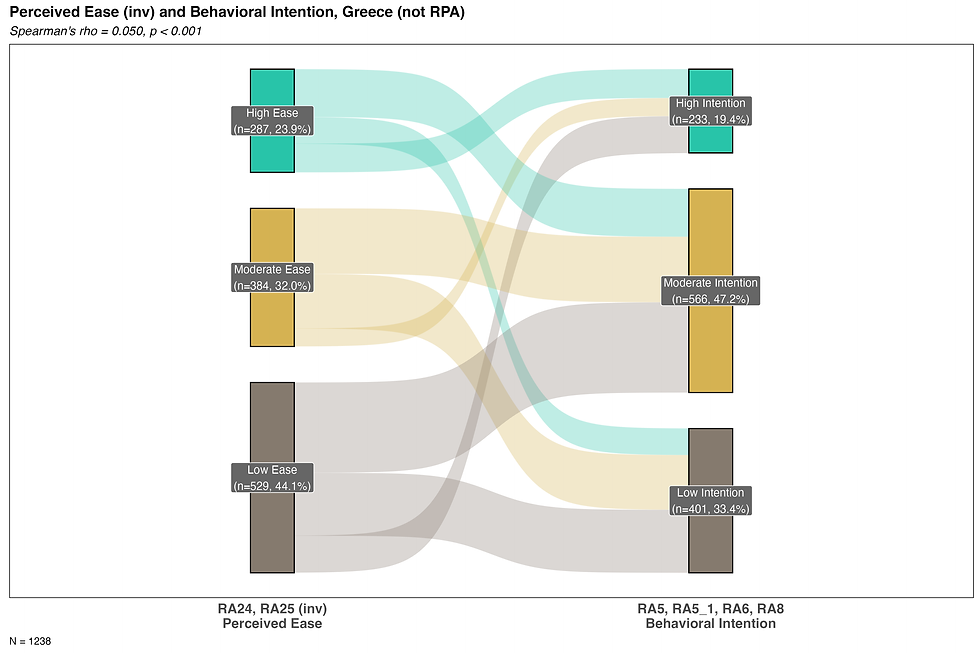
Perceived cost
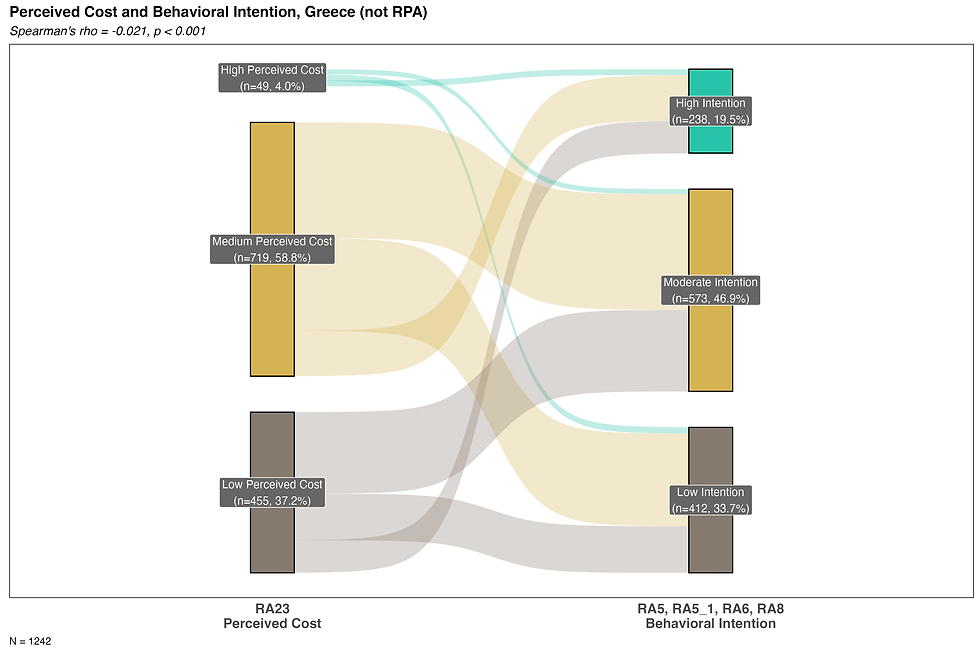

Aesthetic impact of remediation works on a dwelling
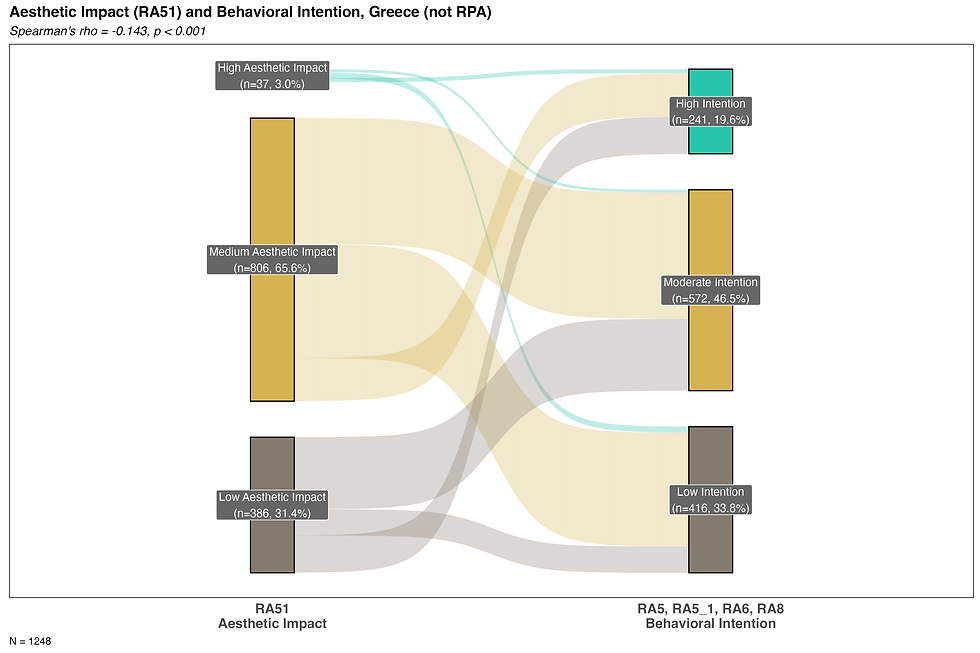
Economic impact of radon on a property value

Information uncertainty
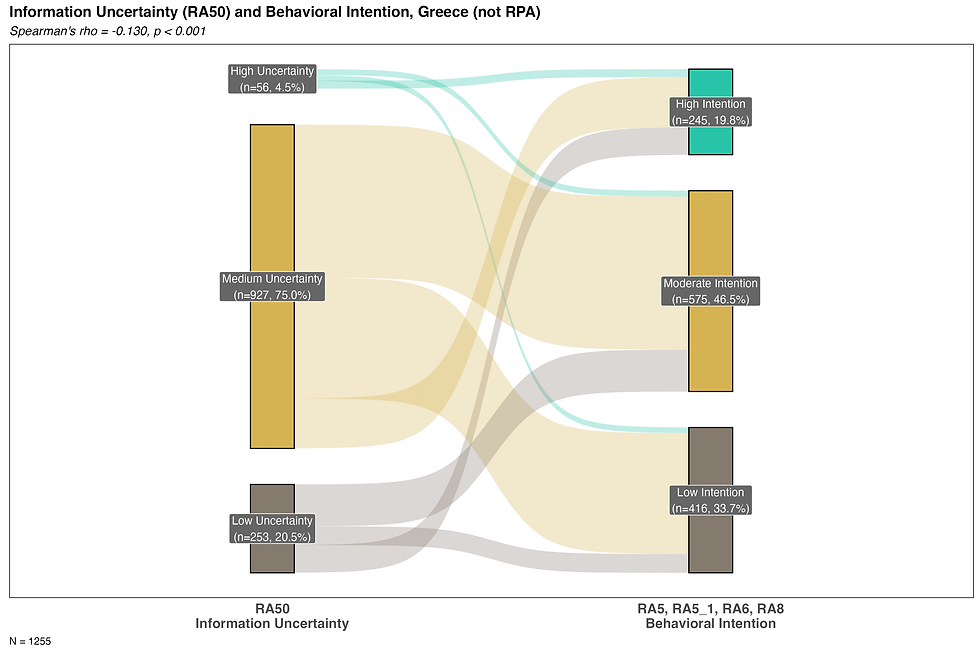
Health effect perception

Affective response to information

Information processing

Relationship Between Radon Awareness and Behavioural Intention to Act on Radon Risk
